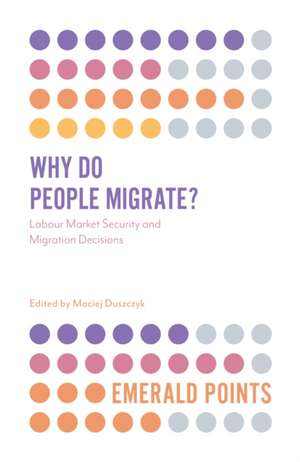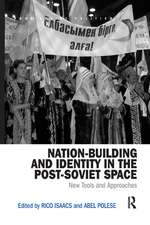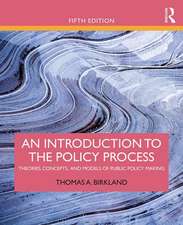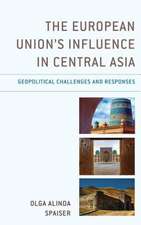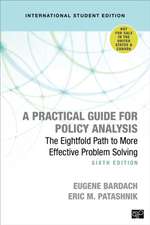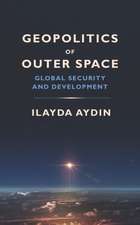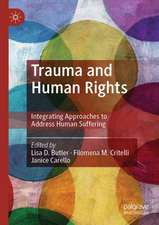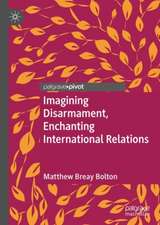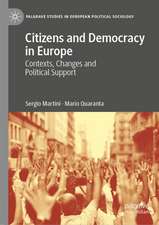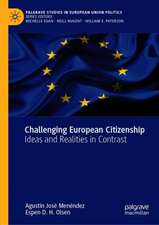Why Do People Migrate? – Labour Market Security and Migration Decisions: Emerald Points
Autor Maciej Duszczyken Limba Engleză Paperback – 15 sep 2019
Din seria Emerald Points
-
 Preț: 375.94 lei
Preț: 375.94 lei -
 Preț: 353.04 lei
Preț: 353.04 lei -
 Preț: 241.04 lei
Preț: 241.04 lei -
 Preț: 354.00 lei
Preț: 354.00 lei -
 Preț: 353.52 lei
Preț: 353.52 lei -
 Preț: 370.09 lei
Preț: 370.09 lei -
 Preț: 370.28 lei
Preț: 370.28 lei -
 Preț: 370.51 lei
Preț: 370.51 lei -
 Preț: 353.52 lei
Preț: 353.52 lei -
 Preț: 353.77 lei
Preț: 353.77 lei -
 Preț: 375.31 lei
Preț: 375.31 lei -
 Preț: 353.77 lei
Preț: 353.77 lei -
 Preț: 316.08 lei
Preț: 316.08 lei -
 Preț: 370.28 lei
Preț: 370.28 lei -
 Preț: 370.77 lei
Preț: 370.77 lei -
 Preț: 231.41 lei
Preț: 231.41 lei -
 Preț: 370.32 lei
Preț: 370.32 lei -
 Preț: 358.55 lei
Preț: 358.55 lei -
 Preț: 240.88 lei
Preț: 240.88 lei -
 Preț: 230.49 lei
Preț: 230.49 lei -
 Preț: 354.25 lei
Preț: 354.25 lei -
 Preț: 231.63 lei
Preț: 231.63 lei -
 Preț: 122.87 lei
Preț: 122.87 lei -
 Preț: 360.71 lei
Preț: 360.71 lei -
 Preț: 354.33 lei
Preț: 354.33 lei -
 Preț: 370.28 lei
Preț: 370.28 lei -
 Preț: 353.77 lei
Preț: 353.77 lei -
 Preț: 153.29 lei
Preț: 153.29 lei -
 Preț: 123.14 lei
Preț: 123.14 lei -
 Preț: 370.28 lei
Preț: 370.28 lei -
 Preț: 371.00 lei
Preț: 371.00 lei -
 Preț: 371.00 lei
Preț: 371.00 lei -
 Preț: 353.29 lei
Preț: 353.29 lei -
 Preț: 370.77 lei
Preț: 370.77 lei -
 Preț: 228.13 lei
Preț: 228.13 lei -
 Preț: 370.51 lei
Preț: 370.51 lei -
 Preț: 370.51 lei
Preț: 370.51 lei -
 Preț: 241.37 lei
Preț: 241.37 lei -
 Preț: 369.08 lei
Preț: 369.08 lei -
 Preț: 370.09 lei
Preț: 370.09 lei -
 Preț: 370.24 lei
Preț: 370.24 lei -
 Preț: 123.70 lei
Preț: 123.70 lei -
 Preț: 267.61 lei
Preț: 267.61 lei -
 Preț: 370.32 lei
Preț: 370.32 lei -
 Preț: 241.15 lei
Preț: 241.15 lei -
 Preț: 355.93 lei
Preț: 355.93 lei -
 Preț: 354.48 lei
Preț: 354.48 lei -
 Preț: 353.04 lei
Preț: 353.04 lei -
 Preț: 356.64 lei
Preț: 356.64 lei
Preț: 215.71 lei
Nou
41.28€ • 43.09$ • 34.16£
Carte disponibilă
Livrare economică 15-29 martie
Livrare express 01-07 martie pentru 23.19 lei
Specificații
ISBN-10: 183867750X
Pagini: 168
Dimensiuni: 165 x 198 x 11 mm
Greutate: 0.18 kg
Editura: Emerald Publishing
Seria Emerald Points
Descriere
Migration is presently a topic that arouses universal interest. Why people choose to migrate is a question that sparks great discussion. Both economic and non-economic factors contribute to this monumental decision. This book, written by experts in the field, focuses on the issue of impact of the expected labour market security on migration decision-making. The idea of push factors such as low levels of security in the state of origin and pull factors such as the expectations of financial security are explored in depth. Another layer of analysis is added as the authors explore how the expected labour market security level may be achieved in various ways. Some migrants may choose a state with a model characterised by extensive legislation related to labour market security, while others will be more willing to choose countries with greater flexibility, where it is as easy to lose a job as to find one and have greater employment security. By providing the most recent research on the impact of labour market security on migration-related decisions, this important text will help not only answer the question of why people decide to migrate, but also uncover the decision-making process in choosing a specific receiving state. By using case studies from around Europe, this book will prove invaluable for researchers, leaders and policy makers in the field of politics and migration studies.
